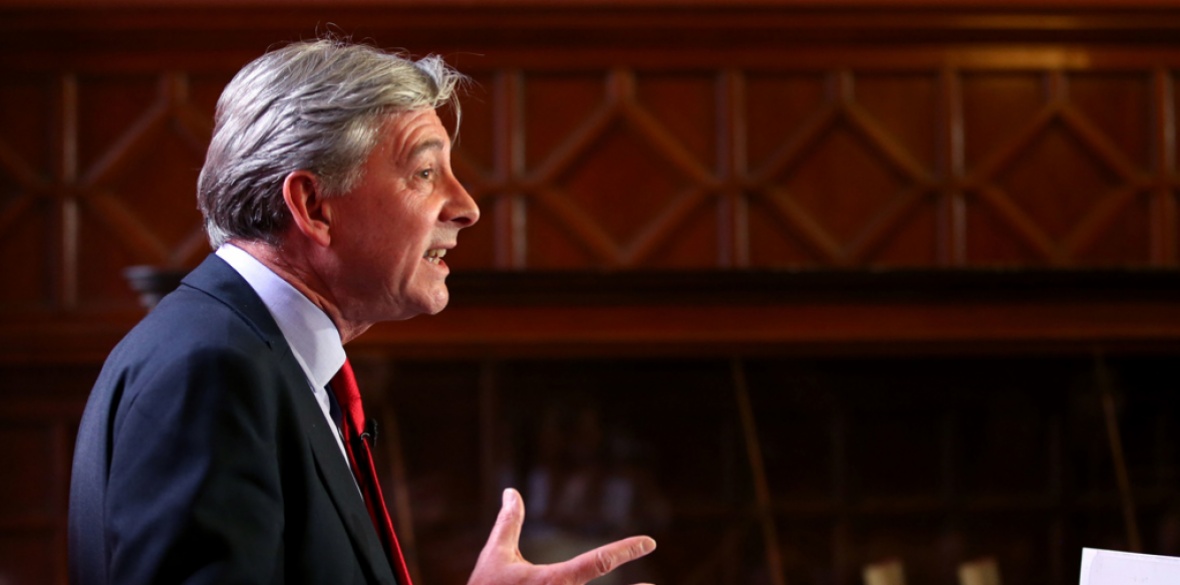This is the last article you can read this month
You can read more article this month
You can read more articles this month
Sorry your limit is up for this month
Reset on:
Please help support the Morning Star by subscribing here
“THE shareholder dividend and the profit motive should never have had any place in our National Health Service. And it should have no place in the delivery of our bus services, in the delivery of our post, no place in our prisons and no place in our asylum system.”
That was Scottish Labour leader Richard Leonard’s declaration to Labour’s Brighton conference last month. This statement, as much as any of the policy announcements, shows how different Scottish Labour is from other parties in Holyrood.
Indeed, under Leonard’s leadership, Scottish Labour is not just offering something different in Scottish politics, but something new. A radicalism that has been all but absent in the era of devolution.
This year has marked the 20thanniversary of the setting up of the Scottish Parliament, prompting many laudatory tributes. Essentially “civic Scotland” sees in the Parliament a reflection of itself, and it likes what it sees.
Across those two decades Scotland has been governed by first Labour in coalition with the Lib Demsand then the SNP. The decline of Labour and rise of nationalism is much commented about. Less examined is the continuity of outlook regardless of party balance.
Whoever is in government there has been: a continued reliance on PFI, an undermining of local government, a further complication of the public service landscape through outsourcing and privatisation, and a far greater willingness to demand more powers for their institution than to fully utilise the powers they currently have.
Leonard is aiming to change that. The contrast between his statement above and the SNP government could scarcely be greater.
While Leonard talks of the necessity to build “a better society in a peaceful world on the strong foundation of a democratic economy” nationalist ministers in Edinburgh hand yet another massive contract (running lifeline ferry services to Orkney and Shetland) to serial leeches on the public purse Serco, and vote with the Tories to keep Scotland’s rail services privatised.
While the SNP is keen not to scare the big-business horses, there are signs that they are alert to the threat that a radicalised Labour Party poses.
The Scottish Parliament debated the final stage of the Climate Change Bill the day after Jeremy Corbyn’s conference speech.
Until that point the SNP was committed to a carbon emissions cut of 70 per cent rather than the 75 per cent proposed by Scottish Labour.
Overnight they changed their mind and adopted the Labour proposal. Typically they then went on to veto most of the Labour amendments to the Bill aimed at putting flesh on the bones of that target.
There has also been some talk from their Westminster leadership that they would be prepared to see Corbyn lead a temporary government in order to prevent a no-deal Brexit.
The SNP is of course a huge fan of the EU. Apart from anything else, it has provided a marvellous excuse for knocking back progressive demands.
When unions were arguing for the living wage to be a requirement in all public contracts, the response was: “We’d love to, but European rules…” But even given its Europhiliait would be a mistake to take its seeming contemplation of a caretaker Corbyn-led government at face value.
This is as much about positioning for the forthcoming election as it is about Brexit.
With a faltering domestic agenda and, sensibly enough given a win looks far from certain, an unwillingness to fire the starting gun on another Indyref, the SNP knows it is vulnerable to a Corbyn challenge.
It appears to have learned the lesson of the 2017 election. At the start of that campaign Nicola Sturgeon was describing Corbyn as being extreme.
By the time it was over she was peddling the nonsense that the way to get people in Parliament who supported Corbyn’s politics was to vote SNP.
Patent nonsense, as even the briefest scan of the SNP’sboasts about lowering business taxes shows.
Corbyn’s Labour worries the SNP. So, increasingly, will a Scottish Labour Party which is, in Leonard’s own words, “under new management.”
While the nationalists lumber along with an agenda that stills sees markets and capitalist competition as common sense, Scottish Labour is, with policies based around public ownership and giving more power and opportunity to workers and tenants, squarely facing up to current challenges.
The first 25 years of Holyrood, perhaps reflecting the New Labour era when it was established, were marked on all sides by a tendency to declare the mildest of reforms as the most radical of measures.
In Leonard we finally have a senior politician in Scotland with a programme whose reality will match the rhetoric.











